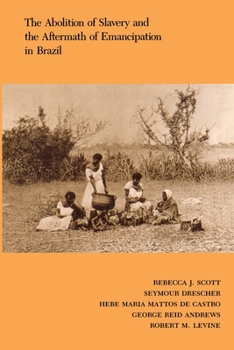The Abolition of Slavery and the Aftermath of Emancipation in Brazil
Select Format
Select Condition 
Book Overview
In May 1888 the Brazilian parliament passed, and Princess Isabel (acting for her father, Emperor Pedro II) signed, the lei aurea, or Golden Law, providing for the total abolition of slavery. Brazil thereby became the last "civilized nation" to part with slavery as a legal institution. The freeing of slaves in Brazil, as in other countries, may not have fulfilled all the hopes for improvement it engendered, but the final act of abolition is certainly one of the defining landmarks of Brazilian history. The articles presented here represent a broad scope of scholarly inquiry that covers developments across a wide canvas of Brazilian history and accentuates the importance of formal abolition as a watershed in that nation's development.
Format:Paperback
Language:English
ISBN:0822308886
ISBN13:9780822308881
Release Date:November 1988
Publisher:Duke University Press
Length:182 Pages
Weight:0.75 lbs.
Dimensions:0.4" x 6.0" x 9.0"
Customer Reviews
0 rating





